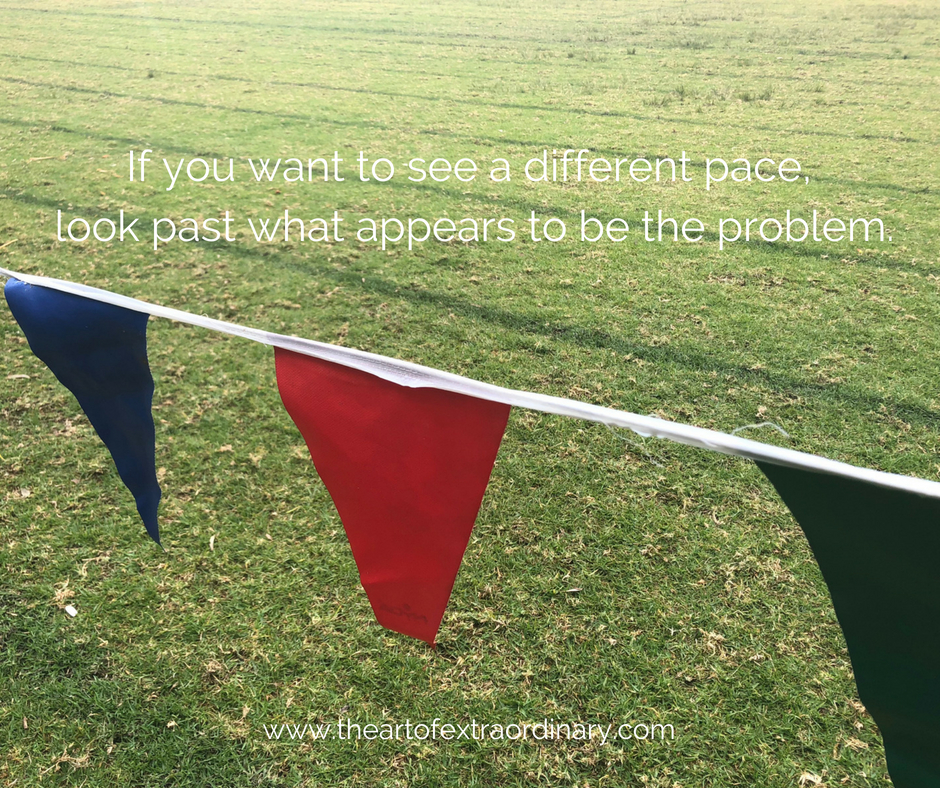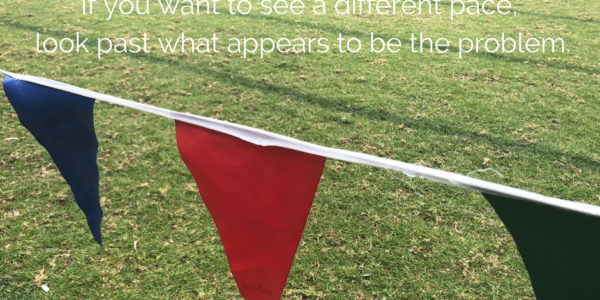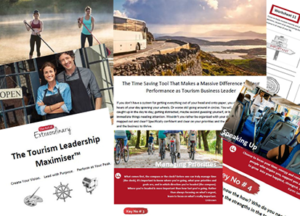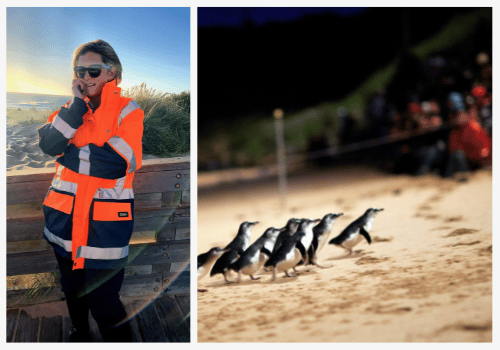
Am typing this whilst sitting in the car between races at the kid’s sports carnival. It’s quite fascinating to watch.
There are some kids that run fast, very fast and then there is those ‘middle of the pack kids’, running hard and then we have a few that are at the back of the pack…plodding along.
It’s their best, you can see it on their faces, they’re doing their absolute best. But it’s no match for the power and speed of those at the front of the race.
There are some that look sleek, like running machines, and others have arms and legs flying (in all directions).
One guy even did the splits and lost a shoe (looked like it was his Dad’s sneaker and way too big!)
Our eyes met, as he momentarily lay in a heap on the ground and I called out “Grab your shoe, carry it in your hand, keep running mate, you’ve got this”.
He sprung up, grabbed the errant shoe and kept on running, as fast as his legs would carry him. One shoe on, one shoe off.
Each carnival, every year, I always position myself right on the turn in the 200 metres, just past the halfway mark and I cheer very loud for all the kids.
No matter what their pace, style, size or costumes (Yes, some get dressed up and look fantastic!)
Because I believe our pace in life is impacted by so much.
I remember being paid out about my running style as a kid. I wasn’t fast, in fact, I was solid and slow. I actually hated running as a kid and it wasn’t until I was well into my early thirties, when I started travelling the world and running around foreign cities to keep fit and sightsee that I really developed a love and a bit of talent for long-distance running.
We aren’t all born with the technical ‘know-how’ to run, we may have aptitude (talent), yet it needs nurturing and development.
Similarly, we haven’t all had the chance to go to Little Athletics and be taught how to run – technically well. Some of us run for fun, in the backyard, around the streets or on sports teams.
What happens if our work-pace is a little like our running pace?
Have you ever had someone on your team who goes at a different pace to everyone else? Are they super-fast and efficient?
Or maybe everyone’s head is down, butt up – working hard, ploughing along? Or do you have 1 or 2 ‘Plodders’, that’s the term a business leader used recently.
Talking about a team member who was just ticking along, doing their thing, albeit cruising somewhat. Ok at it all, BUT (yes BUT in capital letters) the PACE was just a bit too slow for this business leader.
She asked the question “How can I inspire this person to pick up the pace?”
Here’s the thing:- Google describes the verb “Inspire” as to ‘fill (someone) with the urge or ability to do or feel something
It also says “breath in (air); inhale
So the thing with inspiration is it is something internal that a person has to do and feel themselves, rather than you being able to do it for them.
You cannot run the race for them.
So getting a team member to pick up their pace, is not something you’re going to be able to inspire them to do either.
They need to breathe in the air and feel it themselves.
What you may need to do, is actually take a look (behind the scenes) a little closer at their technique.
· How does your fast-team member/s do fast? How do the plodders do slow?
· Have they learnt the skills and technique to be faster and more efficient in the workplace?
· Do they have the attention to detail you require or is it a skill, they’ve yet to develop and need to get better at. Part of that is innate, yet, it is absolutely something that can be trained. We can all learn to double check an email or report before pressing send!
· Do you have a team member who talks too much and gets distracted ‘chatting’ instead of getting on with the job?
There was actually a gorgeous kid today, running, winning his race and still waving and chatting with a friend on the sidelines 😉
· Has the ideal pace expectations been set during recruitment, onboarding and reiterated during team meetings, quarterly meetings and during annual team strategy days?
· Or is the pace something that you expect, yet forget or are unsure of how to communicate with the team. And all of a sudden now, you’re wanting to go into 4th gear, but the team is still in 1st or 2nd?
· Are the systems supportive and empowering for a change in gears or generally for improving the pace?
· Do you honour and keep the timing of regular team meetings or if you’re not around doing the team meeting system (routine) fall apart?
Let’s talk about the influence of ‘inheritance’ and I’m not talking $$$ here.
We inherit some of our skill and talent from those around us, whether parents, carers, coaches or teachers as young kids.
What about in the workplace?
If you’re inducting or on-boarding someone fresh, you can set the pace, however, what happens if they’re bringing the pace from a previous employer, who was ok with the status quo, didn’t push for faster, didn’t encourage efficiency or perhaps was over-pushy?
Micro-management can have that effect.
Sometimes people will stop making an effort because their efforts are always corrected, re-written or never good enough. Sometimes people are so used to being told what to do, they stop thinking for themselves.
Initiative and responsibility hasn’t been encouraged or even demanded as the norm.
So if you want your team to pick up the pace and change gears;
Here are 4 important steps to look at:
1. Have a look at the ENVIRONMENT for running the race? Is it encouraging or discouraging?
2. Is it a TEAM-EFFORT cheering everyone along despite how proficient or efficient they are? Is everyone aware of the team’s strengths and gaps? Are people pitching in to help fill and reduce the gaps?
3. Is there TRAINING happening to work on technique, productivity and performance? Or are there assumptions being made that people ‘should’ already know how what to do or know what’s expected?
4. Is there consistency in REVIEWING the goals and outcomes the business, team and individuals want and are striving to achieve?
A little brag for a moment, Henry’s bestie scored a 1st and a 2nd in his races and Henry nailed 2 x 3rd ribbons today.
Proud as punch of these two. You could see the effort on their faces. On every kid’s face. They gave it their all.
Each of us innately wants to do our best.
We don’t ever naturally come to work wanting to do a crap job or plod along, be back of the pack and told off, seriously, that just doesn’t light anyone’s fire.
The plodding may happen because there are other things going on, distractions, avoidance, uncertainty…
If you have someone who you think isn’t working to the best of their ability, then it’s time to take a good look at the environment, the spectators cheering and the coach you’re being at the start of the line?
What can you do better at or differently whether it’s to encourage the team:
– to run faster
– to have more initiative
– to work together more efficiently
– to get better at handling the pressure
– to improve the communication
– to be more customer-centric
Get to know the team, not just what’s obvious, but what you cannot yet see?
What talent is hiding beneath the surface that just hasn’t yet had a chance to come out?
Genevieve “Pace-setter” Matthews



